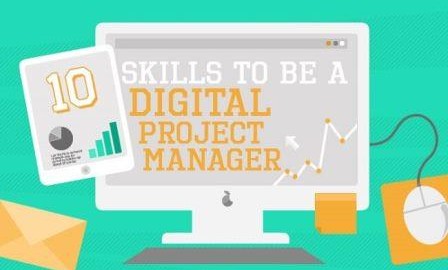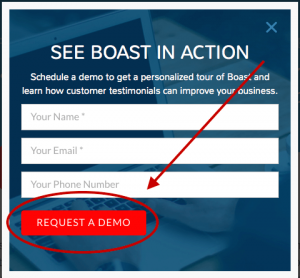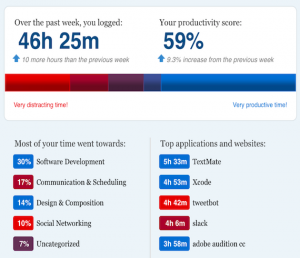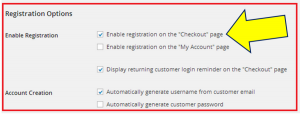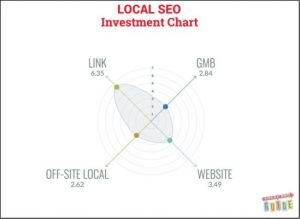
Don’t trust your digital marketing to your niece or some intern thinking that young folks know all they need to know to generate digital marketing success. Sure, they may have 10K following their YouTube channel where they tape themselves doing crazy stunts, or a bunch of folks following their Instagram of drunken parties at State U, but does that make them a digital marketing genius?
NO.
It also doesn’t make much sense hiring someone with a degree in journalism, finance (the newest trend I’m learning), or other degree.
It takes skills to be a digital marketing success and create ROI for your business. And, marketing majors have those skills.
10 Marketing skills
At its heart, digital marketing IS marketing.
Sure, you can learn what and target market is or develop personas by reading a few blog posts, but understanding more complex marketing concepts and tools takes more than an hour or 2. Does your digital marketing employee know about:
- Cialdini’s 6 tools of influence

- Perceptual maps
- Pricing including yield management and demand pricing
- Market research (we don’t mean some feeble attempt, but true market research)
- Group influence
- Service audits
- Marketing planning, strategy, and analytics
- Calculate customer lifetime value and craft strategies for optimization
- Understand the customer journey and craft strategies for unique stages in the customer journey
- and much, much more
And, that’s just the traditional marketing stuff. Now, add digital marketing.
Digital marketing skills
I’ve include the infographic from Premium IT Solutions below. But, this barely scratches the surface when it comes to the skills necessary to drive success in digital marketing. Here’s my take:
 Image courtesy of Occam’s Razor
Image courtesy of Occam’s Razor
Analytics
Marketing in the future will be all about metrics, analysis, and proving performance (ROI).
That’s the excuse given for hiring finance folks — they understand attribution. The marketers of the future need to surpass their financial brethren when it comes to analyzing market performance.
And, they have a leg up.
Marketers know better WHAT to measure to understand how to improve market performance, not just attribution.
While Google Analytics is a great tool, especially with funnel metrics, cohort analysis, and interest metrics, it’s not enough.
Also, marketers know that conversion requires a process bringing in potential customers, driving them down the funnel, and nurturing them to retain customers (which is 5 times less expensive than bringing in new customers). Simply focusing on conversion actually reduces market performance compared to focusing on the entire customer journey.
Design
Gone are the days of spending months using specially trained folks to design your ad or brochure. Now, content is crafted at the moment. Instead of going through layers of careful scrutiny, content creation requires great writing and editing skills, a little design sense, and the ability to manipulate images and text using some basic HTML/CSS.
Strategy
Maybe because marketing material is crafted using nearly JIT (just in time) methods, everyone on your digital marketing team needs to understand strategic direction, determine fit between content and firm goals, and build in performance metrics when creating content for web pages, newsletters, and social media posts.
Google has some great tools to help with understanding how different strategies and tactics contribute to market performance, including event tracking and campaign performance tools.
SEO
It used to be that IT professionals managed SEO — which relied heavily on meta tags and other technical elements of website design.
Today, that’s much different and marketers drive the SEO bus.
Crafting valuable content on a consistent basis and sharing it effectively with influencers, social, and spider bots now determines most of your SERPs (search engine results page — basically where you show up in a search engine search).
SEO also means putting yourself in the minds of prospective buyers to understand how they search for products and services like yours — called keyword planning. Today, searchers use long-tail keywords — keyword phrases — which help them find what they’re looking for with more specificity. So, marketers should think in terms of what keywords (keyword phrases) customers might use to find them.
Listening
Listening to customers and prospects may be the biggest factor contributing to the long-term success of your firm and provide the highest ROI. But, listening isn’t easy.
OK, so listening might be easy and there are lots of tools out there that’ll turn social comments into sentiment. But interpreting what you hear is very difficult when you go beyond sentiment analysis.
Beyond comments about how good or bad you are, social media posts identify unmet needs, new features and functionality they want from your products, evaluations of your support or sales process, and lots of other invaluable information. If you’re not listening carefully to customers and prospects, you can be sure competitors are and they’ll be the ones reaping the benefits from providing products and services that better meet the needs of customers.
Learning
Digital marketing success relies on continual learning — new techniques, new strategies, new social media platforms, benchmarking against competitors, and identifying new opportunities provided by changing technology and culture.
As a digital marketer, you should plan on spending almost as much time reading as writing. Feedly is a great resource for this as it brings in fresh content from top new sources daily.
Community building
 Unlike traditional marketing, digital marketing success requires you build a community around your brand. Community building requires an understanding of the value of members, an ability to engage them, and accurate timing so your posts are seen by influencers and others in your community.
Unlike traditional marketing, digital marketing success requires you build a community around your brand. Community building requires an understanding of the value of members, an ability to engage them, and accurate timing so your posts are seen by influencers and others in your community.
Community outreach through email marketing and other tactics helps your message spread, which increases awareness, build a positive image, and promotes market performance. Buffer and the Buffer blog are great tools for helping build a community of engaged customers and prospects.

(46)
